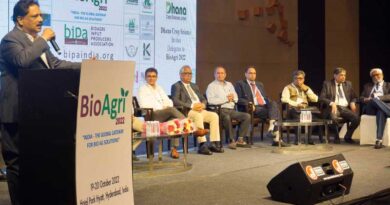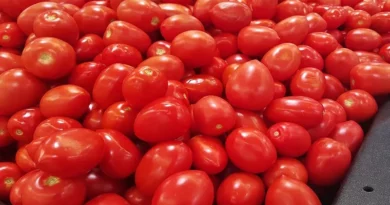Government must include technological interventions in Budget 2023 to propel growth in Agriculture: Dhruv Sawhney, COO at nurture.farm
20 January 2023, New Delhi: More than 50% of the population in India depends on agriculture for their livelihoods. Agriculture is also the 3rd most significant contributor to India’s GDP and will always attract attention in the union budget.
Unlike previous years, the world is moving into 2023-24 with a cautious & uncertain outlook owing to challenges like a looming recession, the Russia-Ukraine war, threats of climate change, falling export numbers, global inflation in crude, edible oil, and wheat prices. A separate budget allocation to improve crop production efficiency and enhancement of the supply chain can improve benefits to the farmers.
Dhruv Sawhney, COO & Business Head, nurture.farm said, “Technology interventions, mechanization, GIS, IoT, AI/ML, Big Data, Blockchain, Drones, etc., can act as critical drivers to propel growth, farm efficiency, and improve production efficiency at scale. The government can expand the existing measures like Digital Agriculture Mission (2021-2025) to include these technological interventions that help deliver market & mandi prices, supply chain visibility, food security, etc.“
Furthermore, he said that the government should support the creation of an open ag ecosystem that acts as a public data library wherein all parties can share & access information & insights around soil wellness, pests & diseases, etc to help fast-track the change. The government can look to promote & open opportunities for PPP (Public Private Partnerships) to improve accessibility and truly bring in digitization at the grass-root level.
Climate Change
A clear definition of the climate change sector needs to be drafted. Incentives and tax benefits for domestic companies that focus on solving climate change can be offered. Creating a well-regulated voluntary carbon markets framework with policies and incentives that help India meet its Net Zero goals.
Policies that encourage farmers to implement sustainable & precision farming practices can be drafted and implemented.
Financial benefits & subsidies for the farmers set aside by the government can be routed via agritech companies & organizations promoting sustainability cultivation practices at a grass-root level to propel a shift towards climate-smart farming practices at scale.
The key objective of introducing the Farmers Produce Trade and Commerce Act 2020 was to facilitate agricultural produce trade outside APMCs. However, measures are yet to be taken to allow trade based on the PAN card outside APMCs. Furthermore, despite the government allocating funds to improve the infrastructure at APMCs for installing testing & drying machines, the availability of these machines could be much higher
Similarly, increasing the number of APMCs, introducing digital platforms to help farmers sell produce at a fair price, delivering market price information, and regularly offering advisory, financial assistance, and best practices. Setting up marketplaces focused on FPOs can also help drive demand and improve farmers’ price realizations.
Also Read: Union Bank sanctions loans for 150 Garuda Kisan drones under Kisan Pushpak scheme
(For Latest Agriculture News & Updates, follow Krishak Jagat on Google News)















